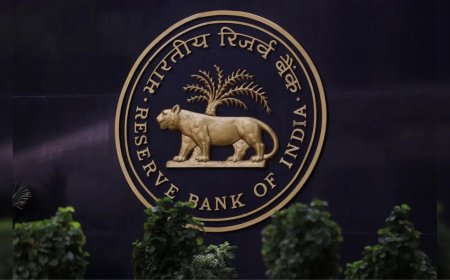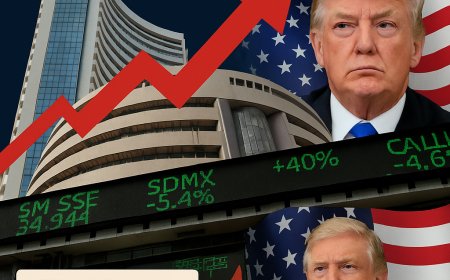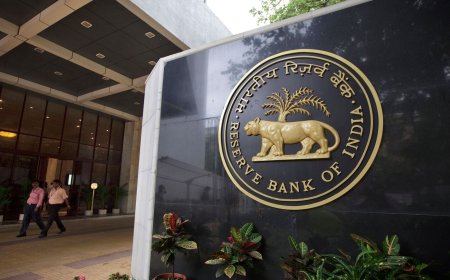OPEC Agrees in Principle to Larger Than Expected Increase
OPEC has agreed in principle to raise oil output by 1.2 million bpd—surpassing forecasts. The decision impacts global oil prices, geopolitics, and energy markets.

OPEC Surprises Markets with Bigger-than-Expected Output Agreement
In a landmark move that could reshape the global oil landscape, the Organization of the Petroleum Exporting Countries (OPEC) has agreed in principle to a larger-than-anticipated increase in crude oil production. The decision, made after intense negotiations among member nations and allies (collectively known as OPEC+), is expected to take effect starting August 2025 and will be gradually implemented over the following months.
The production increase, estimated at around 1.2 million barrels per day (bpd), marks a significant deviation from previous OPEC guidance, which had suggested a more conservative return of around 500,000 bpd.
The announcement has already sent ripples through global energy markets, with Brent crude falling over 2.5% in early trading on Friday, reflecting anticipatory relief among oil-consuming nations.
Key Details of the Agreement
According to sources familiar with the internal discussions, Saudi Arabia and the UAE played instrumental roles in pushing for a more robust supply response amid growing global demand and pressure from large importers such as the U.S. and India.
The key components of the agreement include:
-
A phased increase of 1.2 million bpd from August to October 2025.
-
Conditional flexibility based on price stability and geopolitical risks.
-
An explicit clause to review output monthly and adjust based on demand-supply dynamics.
The formal announcement is expected at the upcoming ministerial meeting in Vienna later this month, where quotas for individual countries will be detailed.
Why the Shift Now?
After nearly two years of production restraint to stabilize post-pandemic oil markets, OPEC faces a complex balancing act. While high oil prices have benefited producer economies, they have also sparked inflation concerns globally and pushed some countries to look for alternative energy sources.
“This output hike signals OPEC’s willingness to respond to macroeconomic signals and avoid over-tightening the market,” said Fatima Al-Mansouri, Energy Strategist at Gulf Capital Research. “It also reflects a desire to maintain market share amid growing non-OPEC supply, especially from U.S. shale producers.”
Global oil demand is projected to grow by 2.1 million bpd in 2025, driven by industrial recovery in Asia and resilient transportation fuel consumption, according to the International Energy Agency (IEA).
Market Reaction: Crude Prices Ease
Following the announcement, Brent crude dropped to $81.45 per barrel, while WTI slid to $77.20, as traders priced in improved supply expectations. The volatility index for oil also saw a modest decline, reflecting a sense of short-term stability.
“The market had priced in a smaller increase, so this larger commitment is seen as a relief,” noted Amarjeet Sharma, Chief Market Analyst at Mumbai-based PetroVest Advisors. “But there’s still a wait-and-watch mood because implementation remains key.”
Meanwhile, equities of major oil producers saw mixed reactions. While companies heavily reliant on high oil prices like ExxonMobil and Saudi Aramco dipped marginally, downstream and refining stocks gained, anticipating lower input costs.
Geopolitical Considerations and Internal Dynamics
While the OPEC+ agreement presents a unified front, behind-the-scenes negotiations revealed persistent tensions. Iran and Venezuela had pushed for faster quota increases to bolster revenues, while some African nations expressed concern over capacity constraints that could limit their participation in the output ramp-up.
Russia, facing sanctions and domestic logistical challenges, agreed to support the plan but signaled it may require special consideration due to export limitations.
Saudi Arabia, the de facto leader of OPEC, emphasized the importance of “market stability, not market control,” suggesting a more flexible approach going forward.
Analyst Outlook: Measured Optimism with Watchful Eyes
Energy analysts are cautiously optimistic that this move will cool overheated oil markets without triggering a supply glut. However, execution risks remain—especially in an environment where global supply chains, shipping routes, and geopolitical tensions remain fragile.
“This is a welcome move for consumers, especially countries grappling with high energy import bills,” said Elizabeth Kerr, Commodities Editor at Bloomberg Energy. “But if prices drop too fast or too far, OPEC+ may reverse course just as quickly.”
Implications for India and Other Oil Importers
India, the world’s third-largest oil importer, stands to benefit from the increased production. Lower crude prices can ease fiscal burdens and inflationary pressures, offering breathing room for policymakers.
The Indian government, which has been lobbying for fairer pricing, welcomed the development. “We commend the proactive stance by OPEC+,” said a spokesperson from the Ministry of Petroleum and Natural Gas. “Stability and predictability in energy prices are vital for sustained growth.”
What Comes Next?
With the formal ratification expected in Vienna, markets will closely watch for the precise country-wise allocations and any potential backpedaling. The next few weeks will also see updates from the U.S. Energy Information Administration (EIA) and IEA, which may revise their forecasts in light of the agreement.
For now, the global oil narrative shifts from scarcity to stability—albeit with a cautious undertone.
What's Your Reaction?
 Like
0
Like
0
 Dislike
0
Dislike
0
 Love
0
Love
0
 Funny
0
Funny
0
 Angry
0
Angry
0
 Sad
0
Sad
0
 Wow
0
Wow
0













































































